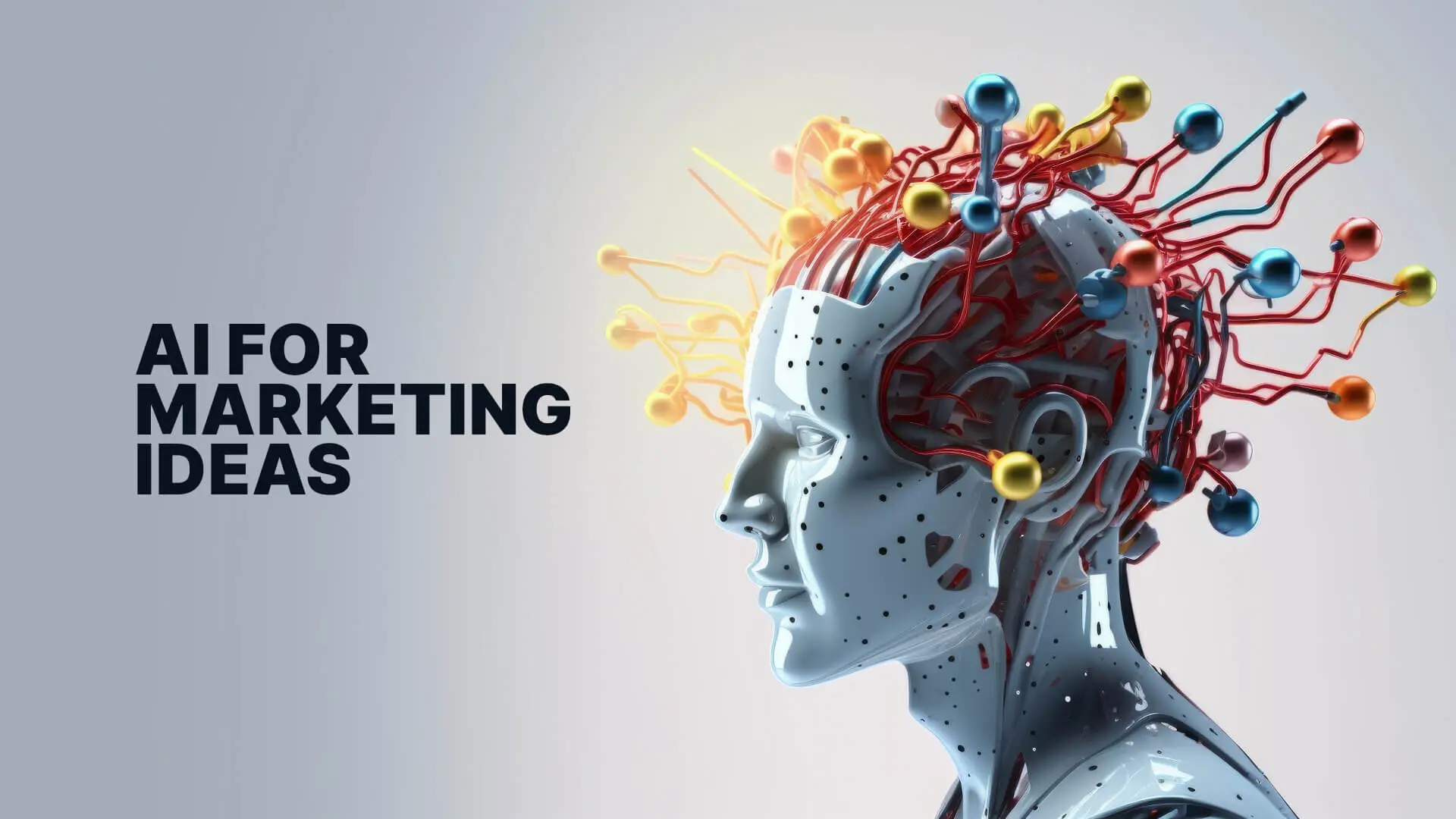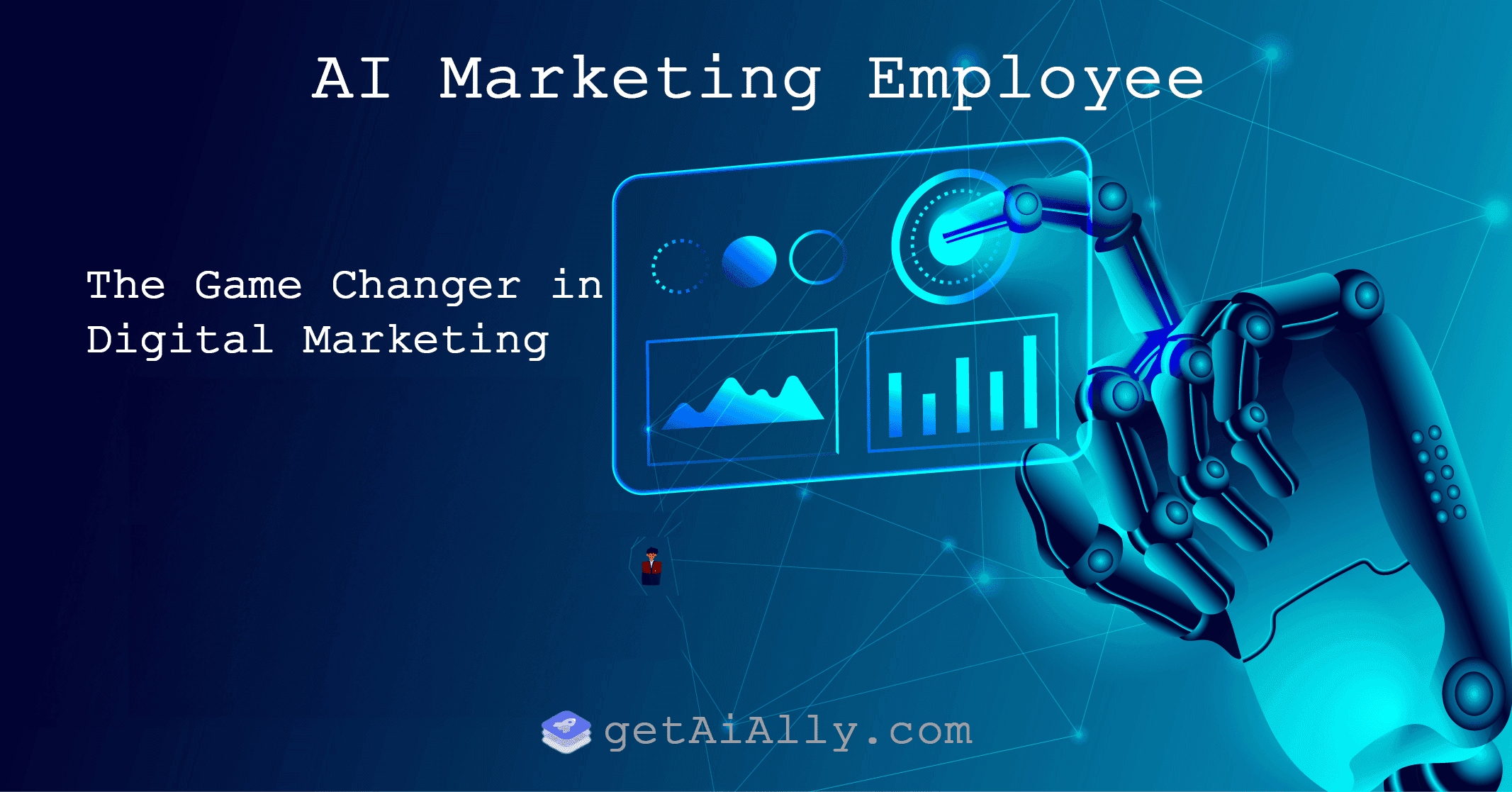Embracing the New Era of AI Marketing: Implementation Strategies and Best Practices

Lawrence Liu
9/7/2024

Welcome to our series of articles on AI marketing employees. This series will delve deep into how AI is fundamentally changing the digital marketing landscape, providing you with comprehensive insights and practical guides. Here's the complete table of contents:
- AI Marketing Employee: The Game Changer in Digital Marketing
- AI Marketing Employee: A New Paradigm for Data-Driven Decision Making
- 24/7 Marketing: How AI is Reshaping Marketing Efficiency
- AI-Driven Personalized Marketing: Redefining Customer Experience
- AI Marketing Employee's Omnichannel Advantage: Data-Driven Multi-Channel Integration
- ROI of AI Marketing Employees: In-Depth Cost-Benefit Analysis
- Embracing the New Era of AI Marketing: Implementation Strategies and Best Practices
- The Future of AI Marketing: Technology Trends and Industry Transformation
With the rapid development of AI technology, AI marketing employees have transformed from a future concept to a present reality. However, successfully implementing AI marketing employees is no easy task. It requires careful planning, meticulous execution, and continuous optimization. This article will reveal key strategies and best practices for implementing AI marketing employees, helping you gain an edge in this marketing revolution.
From Pilot to Full-Scale Deployment: A Gradual Implementation Roadmap
Implementing AI marketing employees is a complex process that requires a gradual approach. A well-designed implementation roadmap can help businesses minimize risks while quickly gaining value.
In-depth Needs Assessment and Goal Setting
Before beginning implementation, a comprehensive needs assessment is crucial. This stage needs to answer the following key questions:
- What are our current marketing pain points?
- What specific problems can AI marketing employees solve for us?
- What specific business goals do we hope to achieve through AI?
By answering these questions, businesses can clarify priority areas and specific goals for implementing AI marketing employees. For example, an e-commerce company might find that its personalized recommendation system is underperforming, and thus set "improving the relevance and conversion rate of product recommendations" as a primary goal.
Choosing Suitable Pilot Projects
Based on the results of the needs assessment, choosing a pilot project with appropriate scope and manageable risk is crucial. An ideal pilot project should:
- Address clear business pain points
- Have clearly measurable success indicators
- Have a relatively short implementation cycle (typically 4-6 months)
- Involve relatively independent systems and processes
For example, AI optimization of email marketing campaigns could be chosen as a pilot project. This project has a clear scope, easily quantifiable effects, and won't cause too much disruption to core business processes.
Phased Expansion and Continuous Optimization
After the success of the pilot project, businesses should adopt a phased expansion strategy:
- Evaluate pilot results: Comprehensively analyze the effectiveness and lessons learned from the pilot project.
- Develop expansion plans: Based on pilot experience, formulate plans for the next phase of expansion.
- Gradual promotion: According to the plan, gradually expand the application scope of AI marketing employees to other marketing areas.
- Continuous optimization: Continuously collect feedback during the expansion process, and continuously optimize AI models and implementation strategies.
This gradual approach allows businesses to continuously learn and adjust during the implementation process, maximizing the value of AI marketing employees.
To support this phased expansion strategy, AI marketing employees are designed as a flexible and scalable system. As shown in the above diagram, it follows a cyclical iterative implementation process, including five key stages: preparation, implementation, analysis, expansion, and evaluation. Within the 4-6 month implementation cycle, AI marketing employees continuously learn and improve, assisting businesses in enhancing marketing effectiveness from initial market research and content creation to later data analysis and strategy optimization. This design ensures that AI marketing employees can evolve with changing business needs, providing continuous marketing support and innovation power for SMEs.
Overcoming Technical Challenges: Building a Solid AI Infrastructure
One major challenge in implementing AI marketing employees is building the technical infrastructure. A powerful, flexible technical architecture is key to unleashing the potential of AI marketing employees.
The Importance of Data Infrastructure
The performance of AI largely depends on the quality of data it can access and process. Therefore, building a robust data infrastructure is crucial:
- Data Integration: Integrate data from various channels and systems to create a unified data lake or data warehouse.
- Data Quality Management: Implement rigorous data cleaning and validation processes to ensure data accuracy and consistency.
- Real-time Data Processing: Establish an architecture capable of processing real-time data streams to support AI's real-time decision-making capabilities.
For example, an omnichannel retailer might need to integrate data from its e-commerce platform, physical store POS systems, CRM system, and social media to build a comprehensive customer data platform, providing rich data sources for AI marketing employees.
Choosing the Right AI Technology Stack
Choosing an AI technology stack that suits the business needs is equally important. This involves decision-making on multiple levels:
- Cloud vs. On-premises Deployment: Evaluate the pros and cons of cloud services and on-premises deployment to choose the solution that best fits the business needs.
- Open Source vs. Commercial Solutions: Weigh the advantages and disadvantages of open-source AI frameworks and commercial AI platforms.
- General vs. Specialized Tools: Choose general AI tools or specialized solutions for marketing based on specific needs.
When making these decisions, businesses need to consider multiple factors, including cost, scalability, ease of use, security, etc. For example, a financial institution that values data security might prefer to choose an on-premises specialized AI marketing solution.
Ensuring System Scalability and Flexibility
As the application scope of AI marketing employees expands, system scalability and flexibility become particularly important:
- Modular Architecture: Adopt a microservices architecture to facilitate flexible system expansion and updates.
- API-First Strategy: Implement an API-first strategy to facilitate integration with other systems and future functional expansions.
- Containerized Deployment: Utilize container technology (such as Docker) to simplify deployment and management processes.
Through these measures, businesses can build an AI marketing infrastructure that can rapidly evolve with business needs.
Change Management: Cultivating an AI-Friendly Organizational Culture
Technology is only half the battle in successfully implementing AI marketing employees; the other half lies in people. Effective change management strategies can help organizations smoothly transition to an AI-driven marketing model.
Fostering a Data-Driven Decision-Making Culture
The success of AI marketing employees relies on organization-wide recognition and practice of data-driven decision-making. Cultivating this culture requires:
- Leadership Example: Senior management should lead by using data and AI insights to guide decisions.
- Data Literacy Training: Provide basic data analysis and interpretation training for all employees.
- Incentive Mechanisms: Establish incentive mechanisms that encourage data-driven decision-making.
For example, a "Data Hero" award could be set up to recognize employees who excel at using data and AI insights to make outstanding decisions.
Redefining Roles and Skill Requirements
The introduction of AI marketing employees will reshape the role definitions and skill requirements of the marketing team:
- Skill Upgrades: Provide AI and data science-related training for existing teams.
- New Role Creation: Create new positions such as AI Marketing Strategist, AI Ethics Officer, etc.
- Interdisciplinary Collaboration: Encourage deep cooperation between marketing, IT, and data science teams.
This transformation requires time and patience. Businesses can consider establishing an internal "AI Academy" to provide continuous learning and development opportunities for employees.
Effective Communication Strategy
Clear, continuous communication is crucial for managing the changes brought by AI:
- Transparency: Openly share the goals, progress, and challenges of AI implementation.
- Two-way Dialogue: Establish channels for employees to express their concerns and suggestions.
- Success Story Sharing: Regularly share success stories brought by AI marketing employees to boost team confidence.
For example, a dedicated internal website could be set up to provide real-time updates on AI project progress and offer an interactive forum for employee discussion and questions.
This chart illustrates the key elements of building an AI-friendly organizational culture, including leadership, skill development, communication strategies, etc. It visually presents multiple dimensions of organizational culture transformation, helping managers comprehensively grasp the key points of change management.
Conclusion: Embracing Change, Leading the Future
Implementing AI marketing employees is a journey full of challenges but also extremely rewarding. It's not just a technology upgrade, but a revolution in the entire organization's way of operating. By adopting a gradual implementation strategy, building a strong technical infrastructure, and actively managing organizational change, businesses can successfully navigate this AI marketing revolution.
Remember, successful implementation of AI marketing employees is not the end, but a new beginning. As technology continues to advance and markets continue to change, businesses need to maintain the ability to learn and adapt. Those who can continuously innovate and optimize in this process will stand out in the new era of AI-driven marketing and win long-term competitive advantages.
Embrace AI, reshape marketing, and your business will open a new chapter full of infinite possibilities. Let's welcome this new era of AI marketing together and explore the bright future of digital marketing!
Related Posts

AI-Driven Personalized Marketing: Redefining the New Paradigm of Customer Experience
Dive deep into how AI marketing employees are revolutionizing personalized marketing strategies. From precise customer profile construction to dynamic content generation, understand how AI creates unprecedented personalized customer experiences.

AI Marketing Employee: A New Paradigm for Data-Driven Decision Making
Explore how AI marketing employees are revolutionizing data processing and analysis. Learn how this groundbreaking technology provides real-time insights, optimizes decision-making processes, and drives precision in marketing strategies.

AI Marketing Employee: The Game Changer in Digital Marketing
Explore how AI marketing employees are revolutionizing the digital marketing landscape. Learn how this groundbreaking technology enhances efficiency, precision, and creates unprecedented value for brands.

